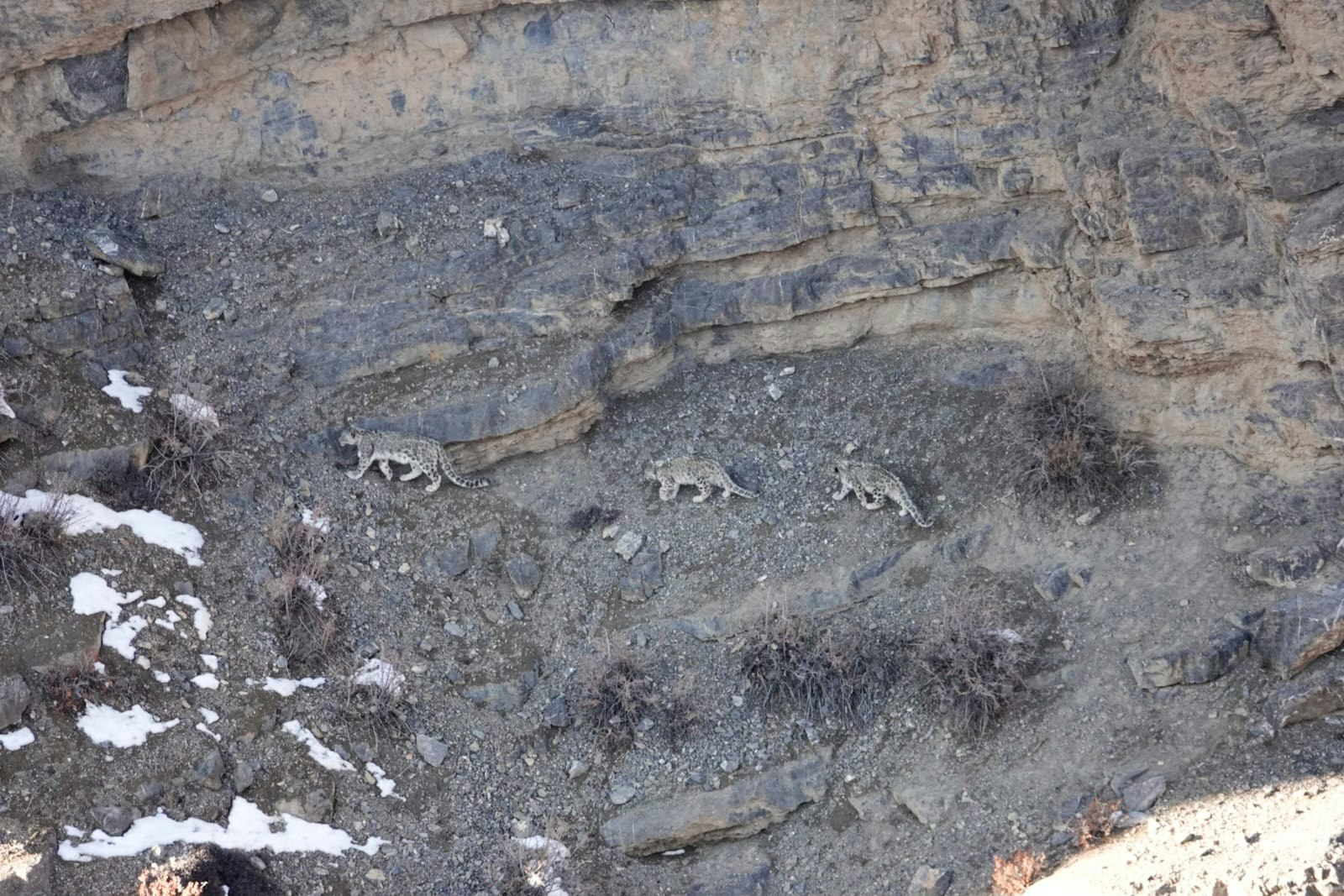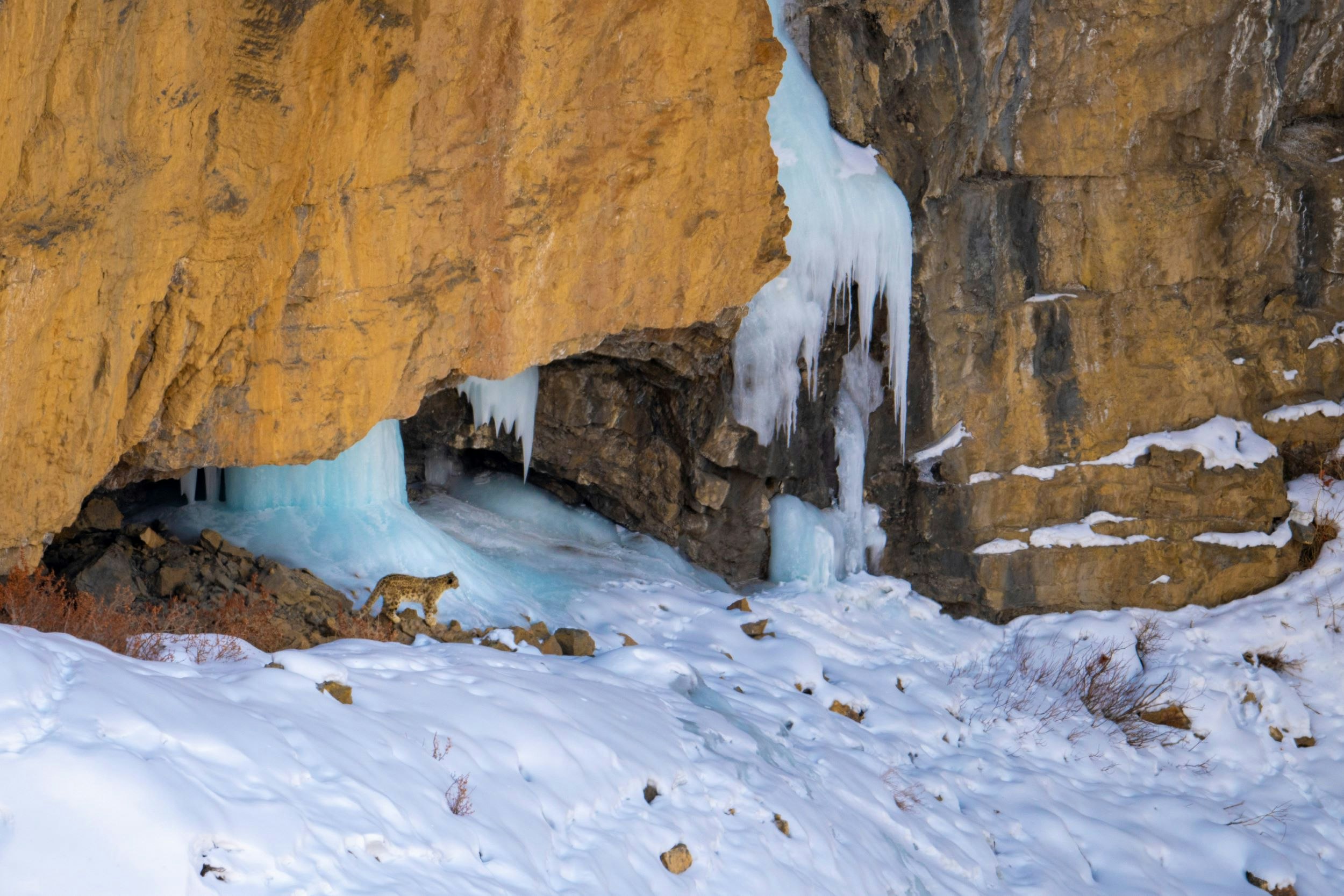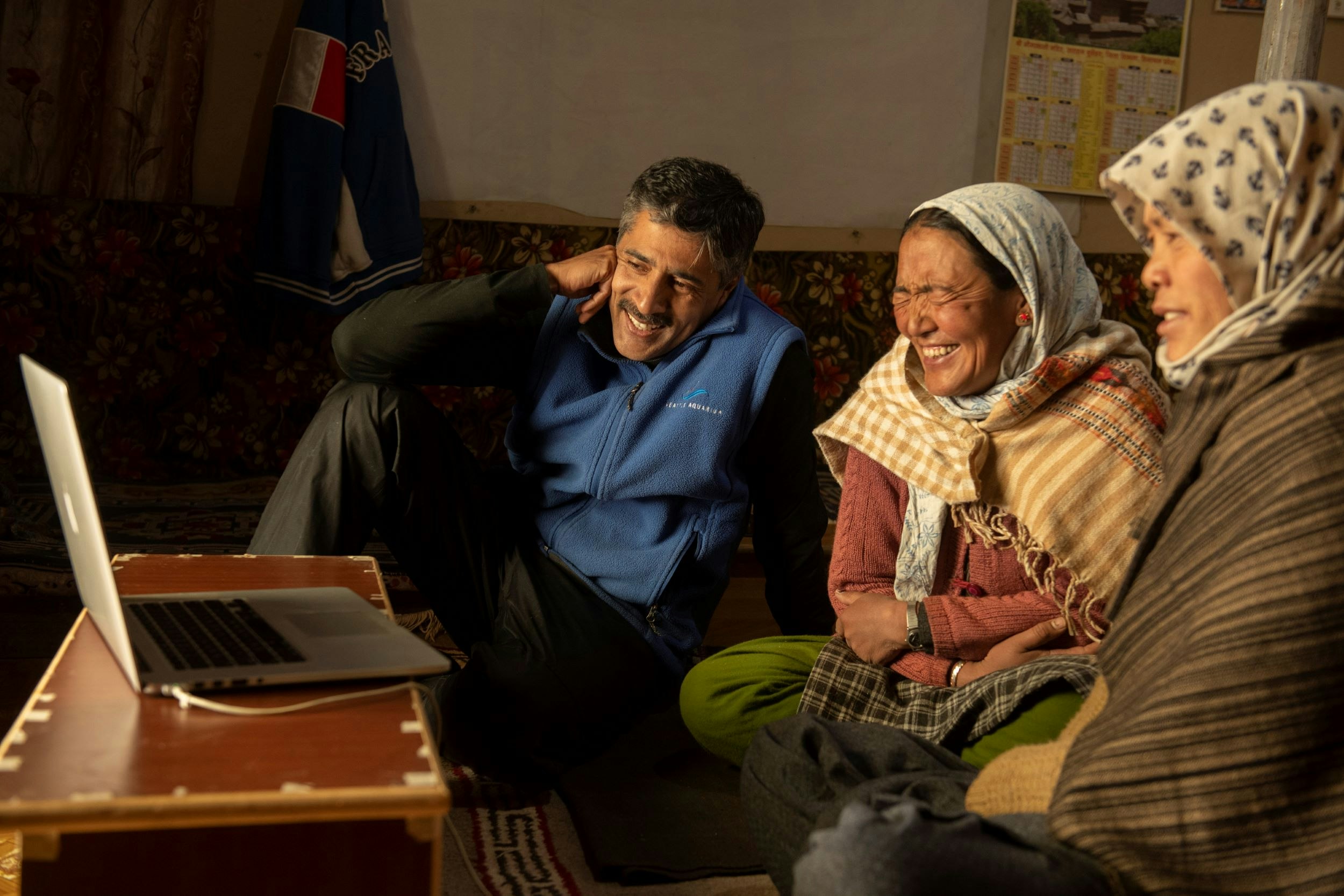How conservationists spotlighted the connection between nature and climate, as fossil fuel talks go into overtime
Listen here to an extract from Dr Charu Mishra’s interview with BBC Radio 4’s Today programme (prefaced by a clip from Planet Earth III)
Snow leopards should become a COP28 symbol of climate resilience, 2022 Whitley Gold Award winner and pioneering snow leopard conservationist, Dr Charu Mishra, told world leaders at the United Nations Climate Change conference in Dubai.
They are “a symbol of hope… they bring our nations together, despite our occasional differences, and despite, sometimes, even serious geopolitical conflicts,” the executive director of the Snow Leopard Trust said of the species whose range spans 12 countries, including Russia, China and India.

The two-week UN Climate summit closed a day later than scheduled, as negotiations for a decisive commitment to phase out fossil fuels to limit global warming entered the eleventh hour.
COP28 saw the first ever Global Stocktake (GST) since the Paris agreement, which assesses how countries have so far acted to meet the maximum target of 1.5°C. After days of negotiations, a new deal was agreed on December 13, for the first time calling on all countries to move away from using fossil fuels — but not to phase them out, as many governments wanted.
The conference of 197 countries plus the EU opened with an agreement by wealthier countries to establish a new climate loss and damage fund to help the world’s most vulnerable countries to climate change. Countries have so far pledged a combined total of just over $700m (£556m) to the loss and damage fund.
Spotlighting the Third Pole at COP28
In a stark example of rising temperatures, the snow leopard range, which covers a region known as the Third Pole, is warming at twice the average rate of warming in the Northern Hemisphere, Dr Mishra told environment ministers from the snow leopard range countries of Kazakhstan, Nepal, Uzbekistan and Pakistan.
Rapidly melting glaciers in the Himalayas — which hold the largest volume of ice outside the polar regions — will place at risk the survival of snow leopards and impact one-third of humanity, Dr Mishra said in a speech on Dec. 2 at COP28.

Dr Mishra was invited to speak at an event hosted by the government of Kyrgyzstan to mark the 10th anniversary of a landmark initiative to protect snow leopards agreed by the governments of all 12 snow leopard countries which “serves as a model for the whole world on how to come together to protect nature, and how to do it keeping local and indigenous people at the forefront,” Dr Mishra said.
Today, local and indigenous communities of High Asia working with the Snow Leopard Trust’s partner network protect more than 50,000 square miles of the species’ habitat.
Ice and snow in the Hindu Kush Himalaya are an important source of water for 12 rivers that flow through 16 countries in Asia, providing freshwater and other vital ecosystem services to 240 million people in the mountains and a further 1.65 billion downstream.

The #SaveOurSnow campaign signed by thousands of earth scientists in 2023 warned of the cascading impacts of climate change in this critical mountain biome. The International Centre for Integrated Mountain Development (ICIMOD), an intergovernmental research institute in the Himalayas, which launched the campaign predicted availability of water in the mountain range is expected to peak in mid century after which it is projected to decline.
“We must intensify our conservation and climate adaptation efforts across the Third Pole. We must create sustainable economies in these regions. Economies of value over economies of scale. Economies founded on values of sustainability, local cultural heritage, local entrepreneurship, and biodiversity conservation,” Dr Mishra said.

Whitley Award winners at COP28
Elsewhere at COP28, Whitley Award alumni put biodiversity firmly on the agenda. Vatasoa Rakotondrazafy from Madagascar, a 2019 Whitley Award winner, spoke at the Resilience Hub in a panel session on women and the changing tide: addressing inequities of small-scale fisheries and aquaculture to discuss how to effectively recognise and support women’s roles.

2001 Whitley Award winner, Vivek Menon from India, joined a panel in Dubai on the protection of biodiversity and its importance in mitigating the climate crisis, and also discussed climate resilience and Protected Areas in Bhutan, which has protected more than 60 percent of its forests.


On December 13, a new deal was agreed, calling on all countries to ‘move away’ from using fossil fuels — but many have criticised that representatives from small island nations were not present when the deal was struck, and a stronger ambition to ‘phase them out entirely’ was lacking from the agreement drawn.


